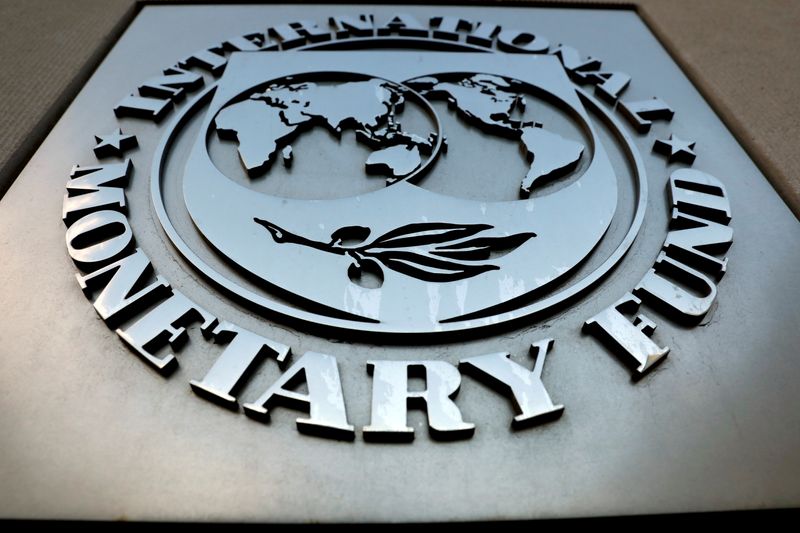By David Lawder
WASHINGTON (Reuters) - The International Monetary Fund said on Wednesday that headline consumer price inflation should peak this fall and recede to pre-pandemic levels by mid-2022, but risks remain that shortage-driven inflation spikes could prove more persistent, unanchoring expectations.
The IMF's baseline forecasts for advanced economies shows headline inflation peaking at 3.6% in the fall of 2021 and declining to about 2% by mid-2022. Emerging market and developing economies will see inflation declining to about 4% next year after peaking at 6.8% this fall.
The staff analysis was released as an analytical chapter of the World Economic Outlook titled "Inflation Scares".
"Sharply rising housing prices and prolonged input supply shortages in advanced and developing economies and continued food price pressures and currency depreciations in emerging markets could keep inflation elevated for longer," the IMF said in the report.
Fund staff ran simulations to include prolonged supply disruptions in certain sectors and large swings in commodity prices that could keep headline inflation "significantly higher than the baseline." Adding in a temporary de-anchoring of inflation expectations, this simulation shows "even higher, more persistent and volatile inflation."
The IMF said headline inflation has recently been driven by pent-up demand and accumulated savings fueled by fiscal and monetary stimulus; rapidly rising commodity prices; and input shortages and supply chain disruptions.
A 40% increase in global food prices since the start of the pandemic has hit low-income countries hard.
Wages have notably risen in sectors hit hard by the COVID-19 pandemic, such as leisure, hospitality and retail in some advanced economies including the United States.
But the chapter notes that wage growth has been accompanied by a decline in hours, and there have been few signs of economy-wide wage acceleration through mid-2021.

Inflation expectations tend to be well-anchored in countries with independent central banks that have credible, well-communicated monetary policies, the IMF said. Inflation accelerations, especially in emerging markets, are often associated with sharp exchange rate depreciations. In advanced economies, they are often preceded by large fiscal deficits, according to the chapter.
During the COVID-19 pandemic, the IMF chapter argues that the anchor for inflation expectations "has remained relatively stable so far during the COVID-19 pandemic."